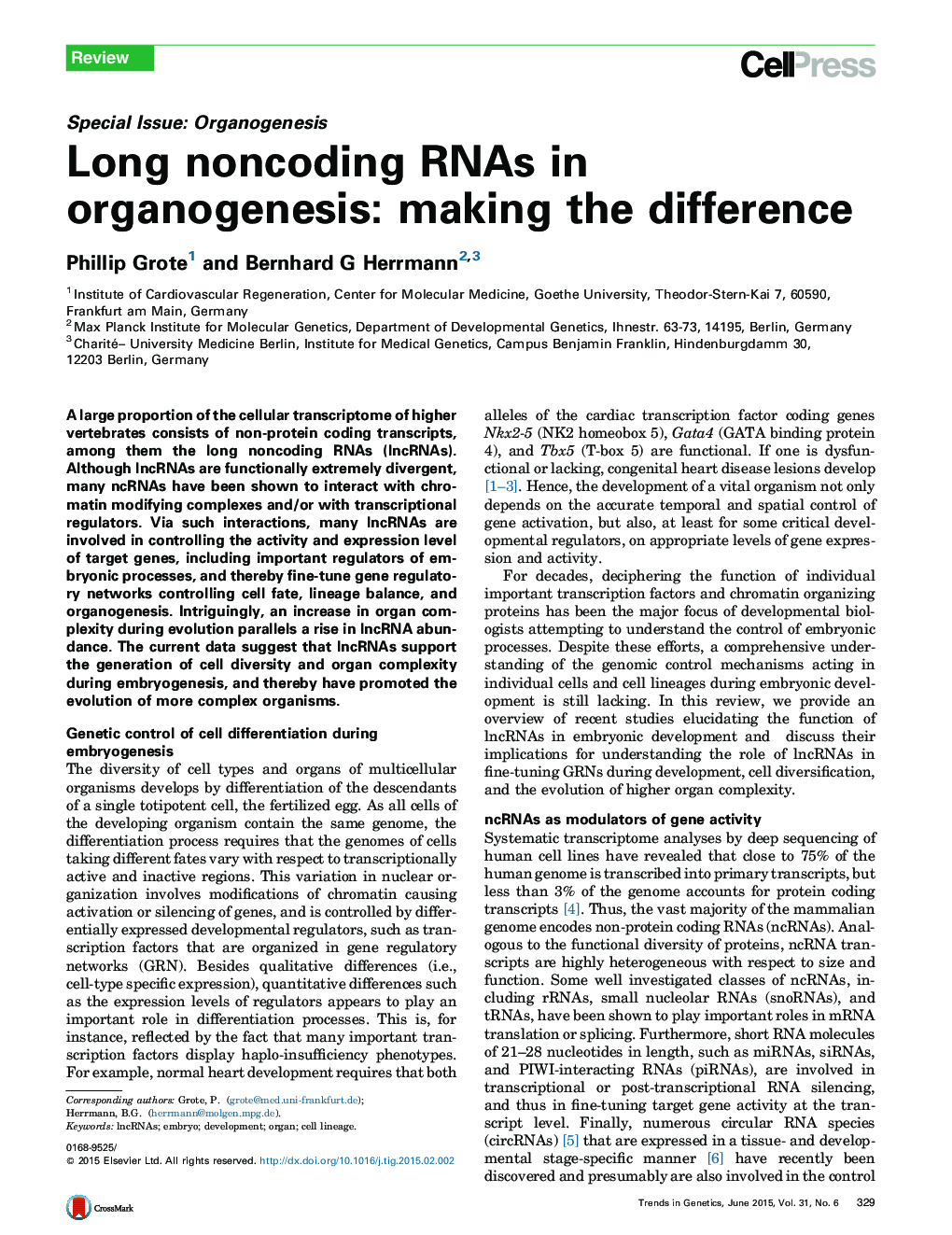| Article ID | Journal | Published Year | Pages | File Type |
|---|---|---|---|---|
| 2824729 | Trends in Genetics | 2015 | 7 Pages |
•lncRNAs are important for lineage choice and differentiation processes.•lncRNAs interact with chromatin and transcription control factors.•lncRNAs are involved in fine-tuning gene regulatory networks.•lncRNAs may have promoted the evolution of complex tissues and organs.
A large proportion of the cellular transcriptome of higher vertebrates consists of non-protein coding transcripts, among them the long noncoding RNAs (lncRNAs). Although lncRNAs are functionally extremely divergent, many ncRNAs have been shown to interact with chromatin modifying complexes and/or with transcriptional regulators. Via such interactions, many lncRNAs are involved in controlling the activity and expression level of target genes, including important regulators of embryonic processes, and thereby fine-tune gene regulatory networks controlling cell fate, lineage balance, and organogenesis. Intriguingly, an increase in organ complexity during evolution parallels a rise in lncRNA abundance. The current data suggest that lncRNAs support the generation of cell diversity and organ complexity during embryogenesis, and thereby have promoted the evolution of more complex organisms.
